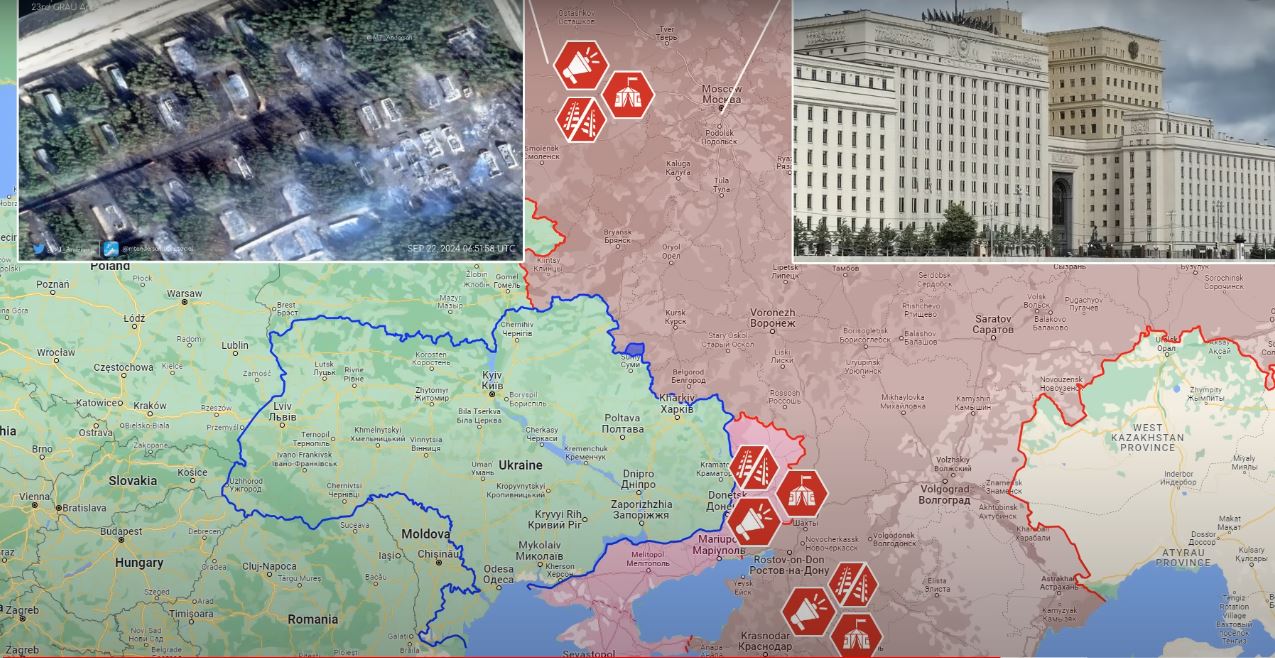In a bizarre repeat of previous denials, the Russian Ministry of Defense again claimed that no direct hits occurred, attributing all damage to fallen Ukrainian drone debris.
All the other issues here aside, I think that you guys are long overdue to find a fresh cover-up strategy. I mean, the “our soldiers were smoking and it exploded” thing was better than this. At least with smoking, there’s the potential to stop the problem in the future, but if air defenses are having the “debris” destroy the targets that they’re aiming at, then the air defenses intrinsically can’t be very effective even when they work.
Speak out against it and now we know you are a dissident!
considers
I found absolutely bizarre the claims from the Kremlin back when that Russia wasn’t shelling Ukraine across the border back when. Like, you’re lying. But it’s not just that you know that you’re lying, but that I know you’re lying and that you know that I know that you’re lying. If it’s not fooling anyone, and you know that you aren’t, then why are you persisting in doing it? Like, when I point out that this is nonsense, why continue to expend credibility on this?
It was absolutely mystifying to me. It’s not something that one does.
Then read something from someone talking about how this is a Russian cultural thing. Like, the idea, if I understand correctly, is that in a scenario like this, Russia wants other countries to ignore the fact that they’re shelling Ukraine. But…it would be awkward for other countries to say “that’s okay with me”. So the idea here is that they are trying to make it as convenient as possible for others to ignore the fact as well. Like, the idea is that one is sort of trying to lubricate the social interaction with bullshit; there’s no deception as such intended, but that the idea is that socially-awkward truths can be more-readily ignored if everyone collectively agrees to disregard them.
It sounds completely bonkers to me, but apparently it is, indeed, a thing.
https://en.wiktionary.org/wiki/vranyo
vranyo (uncountable)
- White lies or half-lies in Russian culture, told without the intention of (maliciously) deceiving, but as a fantasy, suppressing unpleasant parts of the truth.
2007, David Shulman, From Hire to Liar: The Role of Deception in the Workplace, →ISBN, page 79:
The term vranyo in Russian describes the subtle collective participation people can have in deception. Vranyo occurs when one person lies to another, the second person recognizes that the first person is lying, and neither of them acknowledges that any lie was spoken. For example, someone states (knowing otherwise) that he will meet monthly production goals. An audience hears this claim and knows it to be false. No one acknowledges the lie publicly. […] When a co-worker claims to work incredibly hard but is lying and an observer knows that colleague is lying but does not expose the lie—that is vranyo. In subsequent chapters, workers demonstrate a strong inclination to vranyo. Vranyo occurs routinely in meetings […]
So, I dunno. Maybe this is Russia doing this vranyo business; the government and the public both know perfectly well that the air defense didn’t intercept the Ukrainian strike, but it’s easier to pretend that it did than to say that it didn’t? It doesn’t seem to me that dicking up air defense here would be something difficult-enough to grapple with to where it’d make sense, but then I don’t think that this whole vranyo thing makes a lot of sense in the first place, so…shrugs
details
Why The Kremlin Lies: Understanding Its Loose Relationship With the Truth
Russian leaders have used deception for strategic ends in ways that shed light on their geopolitical goals
One of the stickiest challenges for Western governments has been how to deal with, or even understand, a Russian leadership that lies insistently and incessantly, even when it doesn’t need to.
Amid the current crisis over Ukraine, the Kremlin has made the situation both simpler and more confounding. On the one hand, the Russian leadership is stating its most important security concerns and demands more clearly and publicly than ever before. President Vladimir Putin has demanded formal guarantees that there will be no enlargement of NATO to the states of the former Soviet Union and no threatening military presence in Ukraine or elsewhere in eastern Europe.
On the other hand, the Kremlin continues to mask its intentions in a torrent of falsehoods. Senior Russian officials claim that Russian military forces pose no threat to Ukraine while inventing apparent pretexts for a potential invasion—such as accusing Ukrainians of “genocide” and claiming that U.S. military contractors are deploying chemical weapons to the Donbas. The thuggish nature of the Kremlin’s demands and threats undercuts the hand of any Western officials who might want to engage with Moscow. What is the point of talking with a counterpart who has such blatant disregard for the truth?
The Kremlin, for its part, appears to expect that its messages and motivations are clear enough. It doesn’t seem terribly bothered that its reliance on brazen lies leads interlocutors to doubt that anything it says can be trusted. Still, knowing what Moscow is trying to communicate with its various uses and abuses of the truth is important as the West contends with the very real threat of a large-scale Russian military operation in Ukraine. Like it or not, Western policymakers simply do not have the luxury of throwing up their hands and tuning out everything the Kremlin is saying.
Remembering That The Kremlin Expects Others To See Through Its Lies
The Russian leadership’s frequent resorting to transparent lies, known in Russian as vranyo, has been widely analyzed. The Kremlin lies even though it either expects or doesn’t care that others see through such deception. It lies to deflect blame for outrages in which its role has been exposed, such as the shootdown of Malaysian Airlines Flight MH17 over Ukraine in July 2014, the poisoning of former Russian military intelligence officer Sergei Skripal and his daughter in the city of Salisbury in the UK in March 2018, or the assassination attempt on opposition leader Alexei Navalny in Russia in August 2020. Russian officials lie to deflect blame from their allies and proxies too, like when they insisted that evidence of Syrian President Bashar al-Assad’s use of chemical weapons was utter nonsense and blamed Assad’s opponents instead.
Deciphering the Kremlin’s Half-Lies, Half-Truths
The Kremlin also expects foreign governments to be able to see through its lies when they are used in pursuit of underlying strategic goals. On those occasions, half of what the Russian leadership says is a lie, and the other half is the “truth” in a sense—that is, it indicates the goal that Moscow is seeking. Knowing which is which is not always as easy as the regime thinks.
The Kremlin has used the half-lie, half-truth formulation most prominently in the context of Russia’s involvement in eastern Ukraine. It uses the same approach on the subject of Russia’s interference in U.S. elections and Russia’s testing and deployment of a ground-launched cruise missile in violation of the Intermediate-Range Nuclear Forces (INF) Treaty. Each of its falsehoods is connected to a goal that references to all three were included in its December 2021 proposed draft treaty containing its key demands of the United States (see text box 1).
I still have a hard time seeing why the Russian foreign ministry would try to use it in an international relations context where the other party clearly has no intention of playing along, but I guess that the claims about this depot were probably aimed at a Russian domestic audience; RIA is state-run domestic news, rather than outward-facing. So maybe the idea is that the target audience gets that this is bullshit, but accepts that it is bullshit and is okay with it, and that there’s an unspoken social convention to mutually maintain a collective illusion, because it’s easier to live with than the truth. I guess? I mean, it sounds nuts to me, but it’s clearly a thing in at least some cases, so maybe that’s what’s driving this.
Please wrap the citations in a spoiler tag to reduce that wall of text. TY






